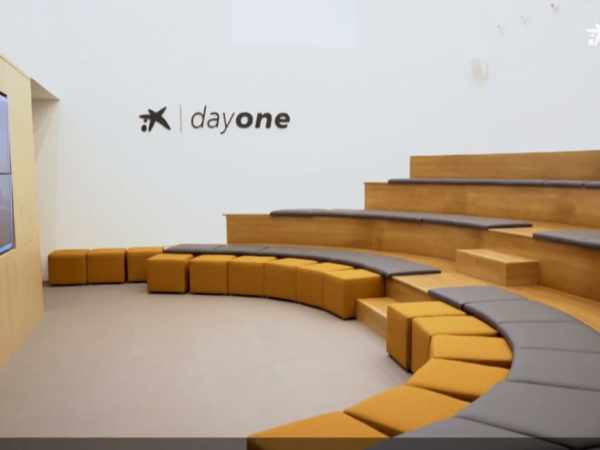We have to invent a whole new tool for the way human beings can coordinate their sense-making processes, their decision-making and their actions… A collective intelligence.

The words of Jordan Greenhall, Former Co- Founder & CEO of DAOstack, introduce very well what in this post and in the previous ones we want to show. The imperative need to bring the power of collaboration to the people by getting in touch with machines. A collective brain? Yes, that’s what we’re talking about.
In the face of collapse, collective intelligence
The world as our ancestors knew it was practically relegated to the history books.
We find ourselves in a new scenario in which our power as a species is stratospheric, but the management of this power is in trouble somewhere.
Our relationship with ourselves and our way of sharing with the world still lacks a collaborative vision. This also results in an immature and even ignorant relationship, being too bold with words, with technologies.

We have forgotten that we come from a group, that we are society. That certain schools of fish react to certain stimuli thanks to a hidden communication network that brings the group together. They are intelligent, yes, but collectively. Why don’t we put the stop sign on this collapse and open the door to collective intelligence for our daily lives?
The value of technology
Part of the lethargy we suffer from every day is unfounded because we maintain a skeptical perspective towards the new technologies that are being created. We are concerned about its uses, the dimensions of its consequences.
In this way, we are allowing the markets, each sector and our own day-to-day life to move towards an individualistic conception. More efficient and more aligned, yes, but individualistic at the end of the day. However, we are less adapted to the collective welfare.

Therefore, experts must create value in the tools we use on a daily basis. It is possible to unite the benefits of each one, with the interests of all, generating a common intelligence.
Collective [artificial] intelligence is about connecting people and computers so that they are collectively smarter than they have ever been separately.
You decide, but with everyone’s intelligence
We closed the previous section with a quote from Thomas Malone, director of the Center for Collective Intelligence, which focuses on collaboration.
Because we are at a point where companies need collectives that self-organize around shared objectives, interests and values.
Thus, platforms such as CiBUC manage to generate ‘artificial’ ideas by grouping and combining many that do not have a concrete name behind them. Ideas that arise from a participatory virtue and are embodied in a smarter and simpler route, to end up solving a challenge.

With this, the solutions extracted proliferate an automatic shared vision that is happily assumed by all. Because we believe that cooperation should always have been thought of as simple, because it can be. Only one ingredient is needed. Which one? The intelligence [artificial] collective.



